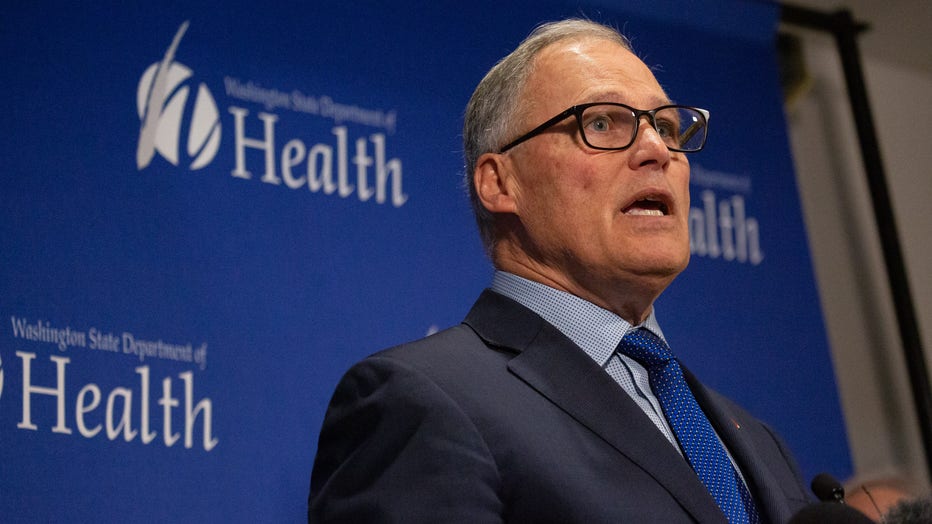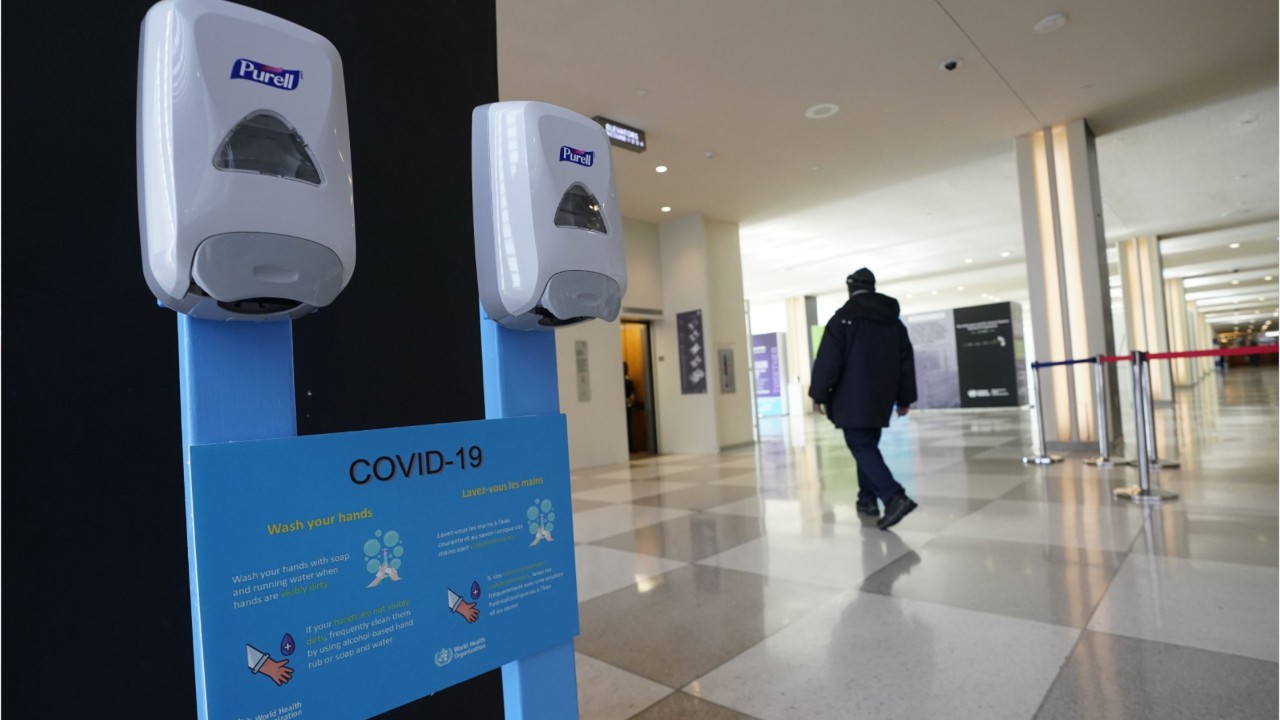Washington officials say over 50 displaying COVID-19 symptoms at health care facility in likely outbreak
OLYMPIA, Wash. (AP) - The governor of Washington declared a state of emergency Saturday after a man died there of COVID-19, the first such reported death in the United States. More than 50 people in a nursing facility are sick and being tested for the virus.
RELATED: Does wearing a face mask protect you from coronavirus and other infectious diseases?
Gov. Jay Inslee directed state agencies to use "all resources necessary" to prepare for and respond to the coronavirus outbreak. The declaration also allows the use of the Washington National Guard, if necessary.
"We will continue to work toward a day where no one dies from this virus," the governor vowed.
Health officials in California, Oregon and Washington state are worried about the novel coronavirus spreading through West Coast communities because people are being infected by unknown means. They had not visited an area where there was an outbreak, nor apparently been in contact with anyone who had.
RELATED: Person in Washington state first in US to die from new coronavirus

FILE - Washington state Governor Jay Inslee speaks during a press conference about the first confirmed U.S. case of a virus known as the 2019 novel coronavirus at the state Public Health Laboratories on January 21, 2020 in Shoreline, Washington. (Photo by David Ryder/Getty Images)
The man who died was in his 50s, had underlying health conditions and no history of travel or contact with a known COVID-19 case, health officials in Washington state said at a news conference. A spokesperson for EvergreenHealth Medical Center, Kayse Dahl, said the person died in the facility in the Seattle suburb of Kirkland.
RELATED: Coronavirus outbreak fear sparks global rush to buy face masks
The health officials reported two cases of COVID-19 virus connected to a long-term care facility in the same suburb, Life Care Center of Kirkland. One is a Life Care worker, a woman in her 40s who is in satisfactory condition at a hospital, and the other is a woman in her 70s and a resident at Life Care who is hospitalized in serious condition. Neither have traveled out of the country.
"In addition, over 50 individuals associated with Life Care are reportedly ill with respiratory symptoms or hospitalized with pneumonia or other respiratory conditions of unknown cause and are being tested for COVID-19," Seattle and King County officials said. "Additional positive cases are expected."
RELATED: As the deadly coronavirus continues to spread, at what point does it become a pandemic?
Amy Reynolds of the Washington state health department said in a brief telephone interview: "We are dealing with an emergency evolving situation."
A growing number of cases in California, Washington state and Oregon are confounding authorities because the infected people hadn't recently traveled overseas or had any known close contact with a traveler or an infected person.
RELATED: Coronavirus more contagious than SARS or MERS, can live on surfaces for up to 9 days, studies say
The U.S. has about 60 confirmed cases. Worldwide, the number of people sickened by the virus hovered Friday around 83,000, and there were more than 2,800 deaths, most of them in China.
Most infections result in mild symptoms, including coughing and fever, though some can become more serious and lead to pneumonia. Older people, especially those with chronic illnesses such as heart or lung disease, are especially vulnerable. Health officials think it spreads mainly from droplets when an infected person coughs or sneezes, similar to how the flu spreads.
RELATED: Coronavirus: Symptoms, testing and how to prepare amid growing COVID-19 outbreak
The number of coronavirus cases in the United States is considered small. But convinced that the number of cases will grow, health agencies are ramping up efforts to identify those who might be sick.
The California Department of Public Health said Friday that the state will receive enough kits from the CDC to test up to 1,200 people a day for the COVID-19 virus — a day after Gov. Gavin Newsom complained to federal health officials that the state had already exhausted its initial 200 test kits.
Oregon was able to more quickly identify a case — an employee of an elementary school near Portland — because it was able to test a sample locally.
Earlier U.S. cases include three people who were evacuated from the central China city of Wuhan, epicenter of the outbreak; 14 people who returned from China, or their spouses; and 42 American passengers on the Diamond Princess cruise ship, who were flown to U.S. military bases in California and Texas for quarantining.
The U.S. government looked at sending dozens of Californians, several of whom tested positive for the virus, who had been aboard the cruise ship to a state-owned facility in Costa Mesa, California. Local officials objected, saying they weren't included in the planning and wanting to know what safeguards would be in place to prevent spread of the virus. The U.S. government said it didn't need to use the facility after all.
At UC Davis Medical Center in California, at least 124 registered nurses and other health care workers were sent home for "self-quarantine" after a Solano County woman with the virus was admitted, National Nurses United, a nationwide union representing registered nurses, said Friday.
The case "highlights the vulnerability of the nation’s hospitals to this virus," the union said.
Earlier Friday, Oregon confirmed its first coronavirus case, a person who works at an elementary school in the Portland area. The Lake Oswego School District sent a robocall to parents saying that Forest Hills Elementary will be closed until Wednesday so it can be deep-cleaned by maintenance workers.
Washington state health officials announced two other new coronavirus cases Friday night, including a high school student who attends Jackson High School in Everett, said Dr. Chris Spitters of the Snohomish County Health District.
The other case in Washington was a woman in in King County in her 50s who had recently traveled to South Korea, authorities said. Neither patient was seriously ill.
The COVID-19 cases of unknown origin marks an escalation of the worldwide outbreak in the U.S. because it means the virus could spread beyond the reach of preventative measures like quarantines.
Federal officials think the coronavirus is spread only through "close contact, being within 6 feet of somebody for what they’re calling a prolonged period of time," said Dr. James Watt, interim state epidemiologist at the California Department of Public Health.



